Protim Bhattacharjee
Implicit Hypothesis Testing and Divergence Preservation in Neural Network Representations
Jan 28, 2026Abstract:We study the supervised training dynamics of neural classifiers through the lens of binary hypothesis testing. We model classification as a set of binary tests between class-conditional distributions of representations and empirically show that, along training trajectories, well-generalizing networks increasingly align with Neyman-Pearson optimal decision rules via monotonic improvements in KL divergence that relate to error rate exponents. We finally discuss how this yields an explanation and possible training or regularization strategies for different classes of neural networks.
Compressed learning based onboard semantic compression for remote sensing platforms
Sep 03, 2024Abstract:Earth observation (EO) plays a crucial role in creating and sustaining a resilient and prosperous society that has far reaching consequences for all life and the planet itself. Remote sensing platforms like satellites, airborne platforms, and more recently dones and UAVs are used for EO. They collect large amounts of data and this needs to be downlinked to Earth for further processing and analysis. Bottleneck for such high throughput acquisition is the downlink bandwidth. Data-centric solutions to image compression is required to address this deluge. In this work, semantic compression is studied through a compressed learning framework that utilizes only fast and sparse matrix-vector multiplication to encode the data. Camera noise and a communication channel are the considered sources of distortion. The complete semantic communication pipeline then consists of a learned low-complexity compression matrix that acts on the noisy camera output to generate onboard a vector of observations that is downlinked through a communication channel, processed through an unrolled network and then fed to a deep learning model performing the necessary downstream tasks; image classification is studied. Distortions are compensated by unrolling layers of NA-ALISTA with a wavelet sparsity prior. Decoding is thus a plug-n-play approach designed according to the camera/environment information and downstream task. The deep learning model for the downstream task is jointly fine-tuned with the compression matrix and the unrolled network through the loss function in an end-to-end fashion. It is shown that addition of a recovery loss along with the task dependent losses improves the downstream performance in noisy settings at low compression ratios.
Onboard Out-of-Calibration Detection of Deep Learning Models using Conformal Prediction
May 04, 2024
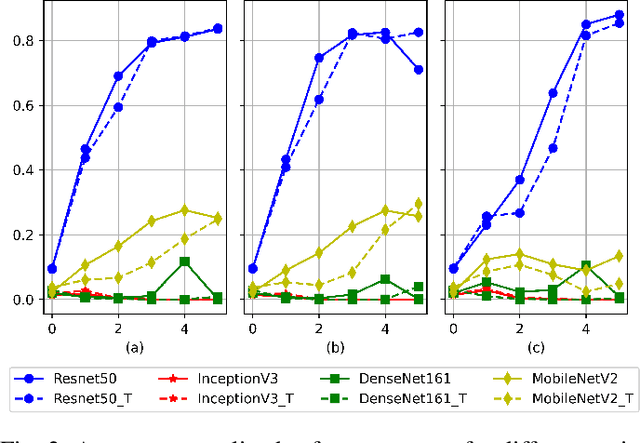
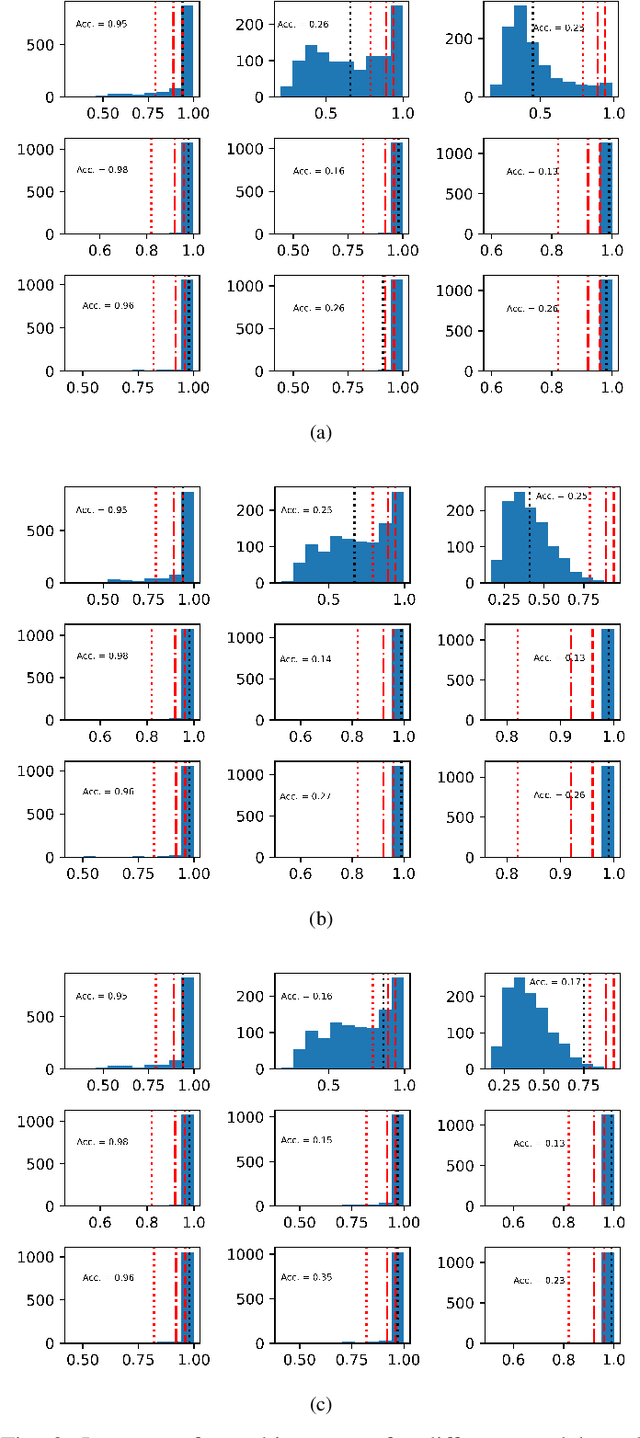
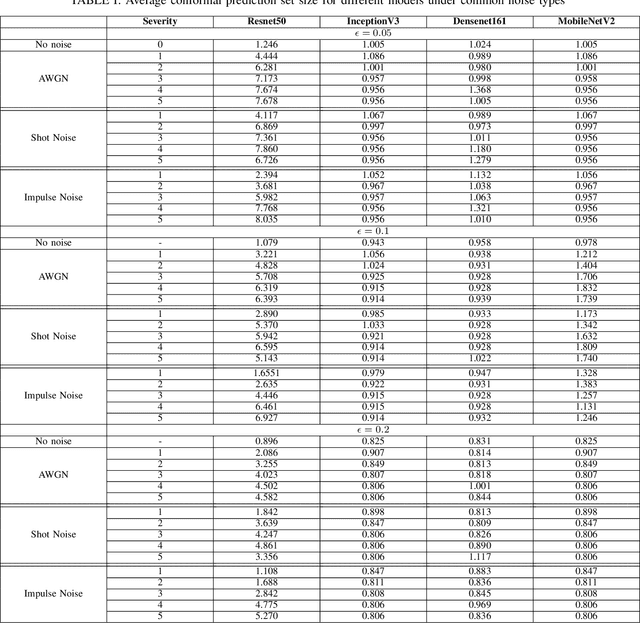
Abstract:The black box nature of deep learning models complicate their usage in critical applications such as remote sensing. Conformal prediction is a method to ensure trust in such scenarios. Subject to data exchangeability, conformal prediction provides finite sample coverage guarantees in the form of a prediction set that is guaranteed to contain the true class within a user defined error rate. In this letter we show that conformal prediction algorithms are related to the uncertainty of the deep learning model and that this relation can be used to detect if the deep learning model is out-of-calibration. Popular classification models like Resnet50, Densenet161, InceptionV3, and MobileNetV2 are applied on remote sensing datasets such as the EuroSAT to demonstrate how under noisy scenarios the model outputs become untrustworthy. Furthermore an out-of-calibration detection procedure relating the model uncertainty and the average size of the conformal prediction set is presented.
Region-of-Interest Prioritised Sampling for Constrained Autonomous Exploration Systems
Jul 15, 2021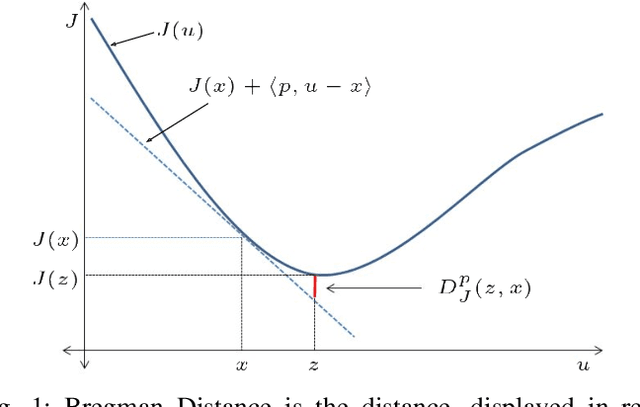
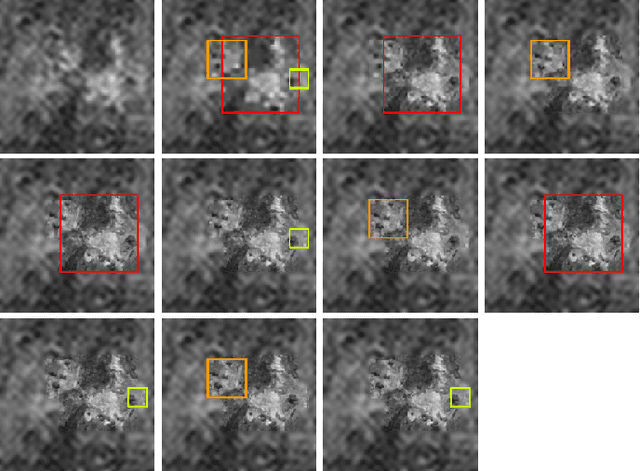
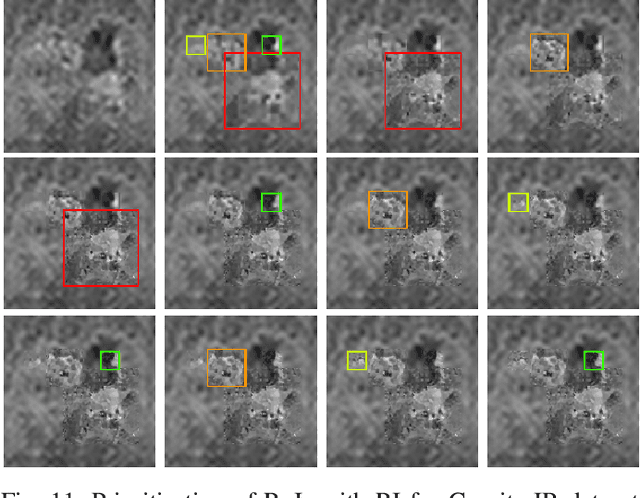
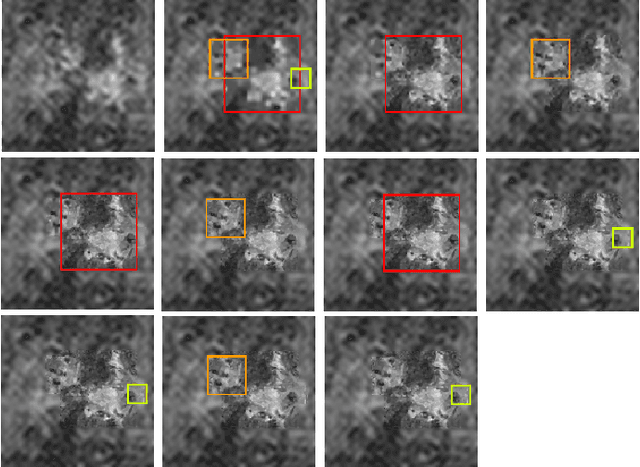
Abstract:Goal oriented autonomous operation of space rovers has been known to increase scientific output of a mission. In this work we present an algorithm, called the RoI Prioritised Sampling (RPS), that prioritises Region-of-Interests (RoIs) in an exploration scenario in order to utilise the limited resources of the imaging instrument on the rover effectively. This prioritisation is based on an estimator that evaluates the change in information content at consecutive spatial scales of the RoIs without calculating the finer scale reconstruction. The estimator, called the Refinement Indicator, is motivated and derived. Multiscale acquisition approaches, based on classical and multi-level compressed sensing, with respect to the single pixel camera architecture are discussed. The performance of the algorithm is verified on airborne sensor images and compared with the state-of-the-art multi-resolution reconstruction algorithms. At the considered sub-sampling rates the RPS is shown to better utilise the system resources for reconstructing the RoIs.
 Add to Chrome
Add to Chrome Add to Firefox
Add to Firefox Add to Edge
Add to Edge